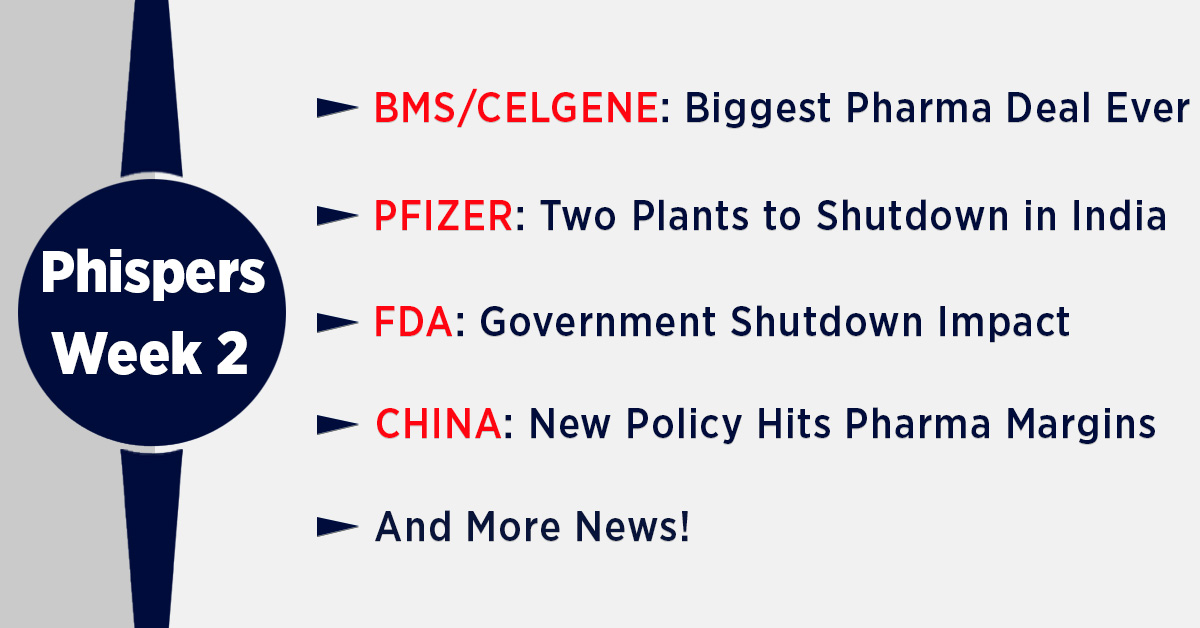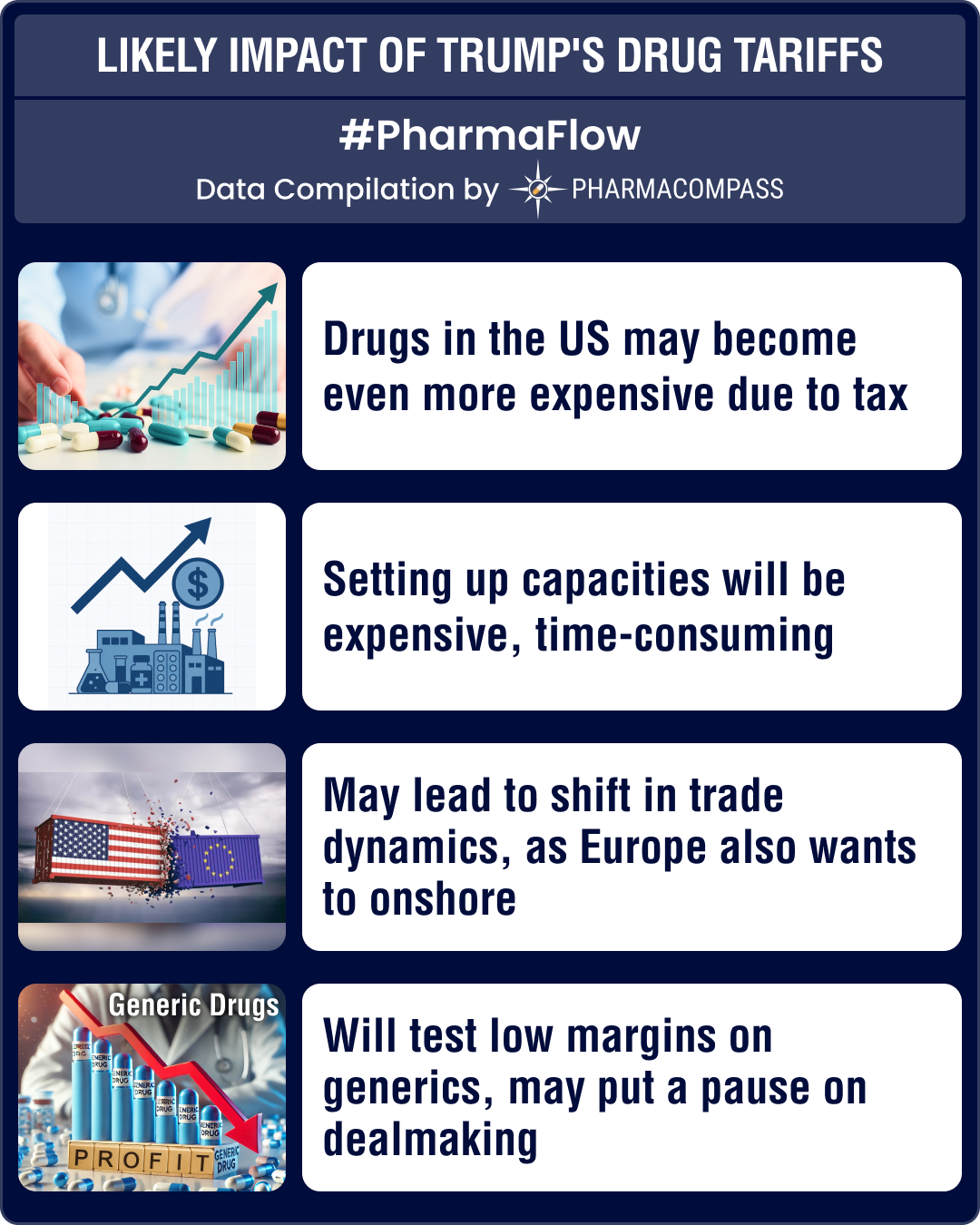
By PharmaCompass
2019-01-10
Impressions: 502
If you recall, January 2018 ended with a bang, with several big ticket M&A deals and bids. This included Sanofi’s acquisition of Bioverativ for US$ 11.6 billion and Celgene’s acquisition of Juno Therapeutics in a deal worth US$ 9 billion. And that set the trend for 2018, which saw several M&A deals, including the acquisition of Ireland-based rare disease specialist Shire by Japanese drug major Takeda for US$ 64 billion, announced in May 2018.
But the start of 2019 has proven to be even bigger. Companies worked through the holidays to close deals. Two companies reached a US$ 74 billion deal last week — Bristol-Myers Squibb announced it would acquire New Jersey-based cancer drug company Celgene.
The deal is far costlier than Takeda-Shire. After factoring in debt, the value of the deal balloons to about US$ 95 billion. According to data compiled by Refinitiv, this is the largest healthcare deal on record.
Little wonder then that Bristol investors were less than enthused— shares of Bristol slid 12 percent, whereas shares of Celgene surged 25 percent shortly after the announcement. According to news reports, there’s a chance Bristol investors may not approve the acquisition. They think Bristol is overpaying for Celgene, reveals a quick survey of around 100 institutional clients undertaken by Mizuho Securities USA.
The deal adds about US$ 32 billion in fresh debt to Bristol’s balance sheet to fund the acquisition of Celgene, a company that has about US$ 20 billion of debt of its own. Bristol's current outstanding long-term obligations stand at about US$ 7.3 billion, according to data compiled by FactSet. Post the acquisition of Celgene, Bristol’s debt will stand at US$ 39.3 billion.
In the past, both Bristol-Myers Squibb and Celgene have seen their shares suffer due to the need for new products. The acquisition of Celgene will give Bristol more cancer drugs at a time when its immuno-oncology portfolio struggles to keep up with Merck’s. Bristol’s blockbuster Opdivo, which boosts the immune system to attack cancer, has fallen behind its leading competitor — Merck’s Keytruda. Meanwhile, Celgene’s best-selling drug, Revlimid, is expected to lose patent protection in the next few years.
“Both companies were kind of limping into 2019,” said Brad Loncar, CEO of Loncar Investments. “Combining gives them a little more scale and a little more strength.”
There may be more M&A news from companies like AbbVie, Gilead and Amgen in the days to come. According to FiercePharma, after its acquisition of Kite last year, Gilead maybe setting its eyes on Clovis Oncology. And Bernstein analyst Ronny Gal suggests that Amgen maybe looking for a buyout of rare-disease focused Alexion.
The PharmaCompass Newsletter – Sign Up, Stay Ahead
Feedback, help us to improve. Click here
Image Credit : #Phisper Infographic by SCORR MARKETING & PharmaCompass is licensed under CC BY 2.0
“ The article is based on the information available in public and which the author believes to be true. The author is not disseminating any information, which the author believes or knows, is confidential or in conflict with the privacy of any person. The views expressed or information supplied through this article is mere opinion and observation of the author. The author does not intend to defame, insult or, cause loss or damage to anyone, in any manner, through this article.”








